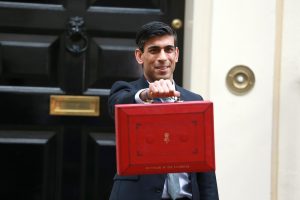This time last week, pensions seemed to be within Chancellor Rishi Sunak’s firing line.
Indeed, in the lead-up to the Autumn Budget, rumours regarding cutting pension tax relief were relentless. Even on the morning of the Budget, there were suggestions that Mr Sunak intended to reduce the annual saving allowance, both of which would have dealt a significant blow to savers.
It could, therefore, be argued to be anti-climactic that pensions received little more than a passing reference during the announcement itself.
This will have initially caused savers to breathe a sigh of relief. After facing great disruption over the previous year – the temporary hiatus of the state pension triple lock and uncertainty over the state pension age, to name a few examples – people will have been thankful that pension policy was left untouched.
However, the silence regarding pensions speaks volumes about the state of the sector and the Government’s attitude towards savers…
Silence isn’t golden
The Government did not ignore pensions entirely. Indeed, Mr Sunak briefly mentioned that greater protection for workplace pension savers would be introduced to help individuals avoid higher scheme charges. This is promising and should encourage more people to save into their workplace pension scheme.
That said, this does not counteract years of pension policy mismanagement. Just a month ago, data revealed that the Department for Work and Pensions (DWP) underpaid hundreds of thousands of retirees on their state pension. Further to this, nearly 2.1 million UK pensioners are currently living in poverty. As our executive chairman, Andrew Megson, explained in The Daily Express, Financial Reporter, and Professional Paraplanner, more must be done to fix the pension system.
Indeed, the Autumn Budget would have provided the Government with an excellent opportunity to launch a thorough review into the existing processes and regulations surrounding pensions in a bid to simplify the system and improve transparency. Doing so would have reinstated a great deal of confidence back into the Government’s handling of pensions, as well as being a positive step to helping retirees out of pension poverty. Instead, the Government remained silent.
Of course, such investigations will take time to conduct. Likewise, system changes will take a long time to implement; we are unlikely to see immediate changes for some time.
That said, action could be taken by the Government to help pension savers as soon as possible.
Access to advice
My Pension Expert has long argued that the key to a financially secure retirement is seeking advice. After all, such advisers, like our own expert team, are equipped to review a person’s financial situation and future retirement goals and offer tailored advice to suit their specific needs.
As such, Government must do more to champion the benefits of independent financial advice and help Britons to access it. This will likely involve joining forces with regulatory bodies within the financial services sector to publicise information and case studies that outline the clear benefits to be gained by seeking independent financial advice. Better yet, they should actively direct savers towards regulated financial advisers, so they know exactly who to turn to. Doing so would be an incredibly positive and simple step towards ensuring that Britons understand the complexities of their pension, ensuring that they take appropriate action to avoid pension poverty.
Systematic change to the pension sector will take time. However, Mr Sunak was wrong to sidestep the issue entirely in the Budget. Over the coming months, My Pension Expert hopes to see the Government making a conscious effort to engage with Britons and working to improve their awareness of, as well as access to, independent financial advice. Doing so would be an excellent starting point to change the pension sector for the better.




